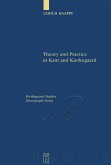This study examines the place of Hermann von Helmholtz's seminal papers on geometry in his philosophy of science. The arguments of these papers are traced back to his prior work on the theory of magnitudes, as well as to Helmholtz's early, Kantian position. The author claims that Helmholtz should be understood not as opposing Kant, but as modifying the latter's theory of magnitudes so as to remove obstacles to their common project of constructing a complete system of natural science.
This book offers a new interpretation of Hermann von Helmholtz's work on the epistemology of geometry. A detailed analysis of the philosophical arguments of Helmholtz's Erhaltung der Kraft shows that he took physical theories to be constrained by a regulative ideal. They must render nature "completely comprehensible", which implies that all physical magnitudes must be relations among empirically given phenomena. This conviction eventually forced Helmholtz to explain how geometry itself could be so construed. Hyder shows how Helmholtz answered this question by drawing on the theory of magnitudes developed in his research on the colour-space. He argues against the dominant interpretation of Helmholtz's work by suggesting that for the latter, it is less the inductive character of geometry that makes it empirical, and rather the regulative requirement that the system of natural science be empirically closed.
This book offers a new interpretation of Hermann von Helmholtz's work on the epistemology of geometry. A detailed analysis of the philosophical arguments of Helmholtz's Erhaltung der Kraft shows that he took physical theories to be constrained by a regulative ideal. They must render nature "completely comprehensible", which implies that all physical magnitudes must be relations among empirically given phenomena. This conviction eventually forced Helmholtz to explain how geometry itself could be so construed. Hyder shows how Helmholtz answered this question by drawing on the theory of magnitudes developed in his research on the colour-space. He argues against the dominant interpretation of Helmholtz's work by suggesting that for the latter, it is less the inductive character of geometry that makes it empirical, and rather the regulative requirement that the system of natural science be empirically closed.
"David Hyder's The Determinate World is ambitious and challenging. It is an exciting and tough read, and it covers a great deal of ground. Hyder constructs a careful and stimulating narrative, to make a number of significant and well-constructed arguments concerning Helmholtz's epistemology, his relationship to Kant, and his empirical geometry. The Determinate World is an excellent contribution to the history of philosophy of 19th century science - those who work in the field will need to engage with this book."
Lydia Patton in: http://ndpr.nd.edu/review.cfm?id=20627
Lydia Patton in: http://ndpr.nd.edu/review.cfm?id=20627








